How to Volunteer
Being a volunteer here at Big Oak Wolf Sanctuary is not a walk in the park!
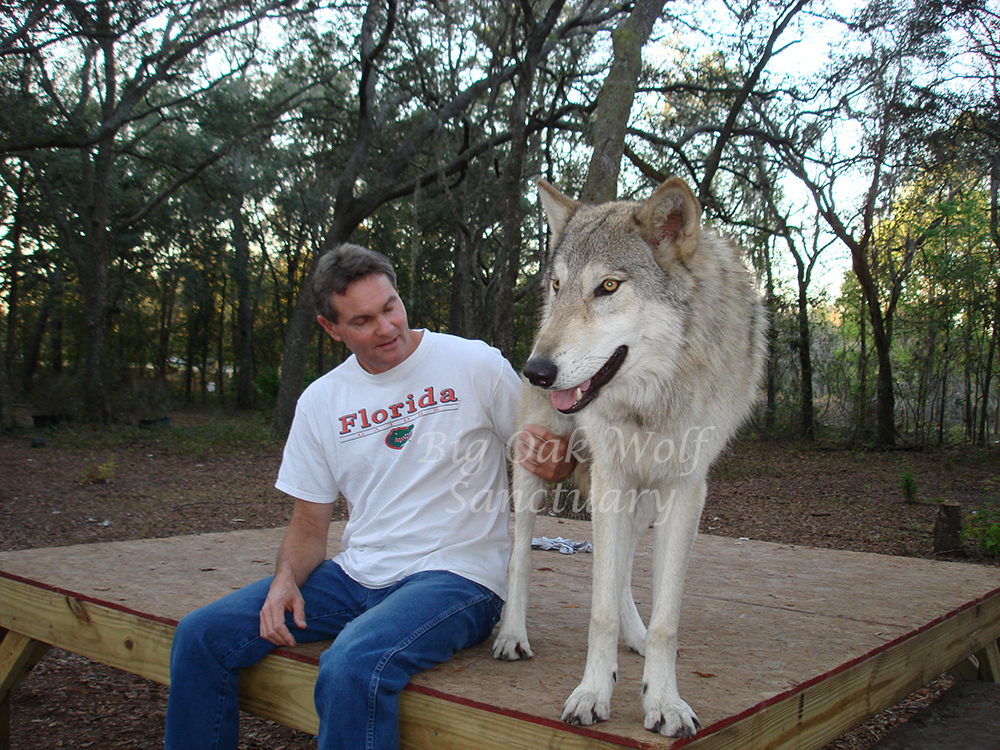 Due to the learning curve, the volume of training required, the anxiety a new volunteer causes the wolves and wolf dogs here, and of course, the obvious liability issues involved with being in direct contact with abused wolves, becoming a volunteer here is a huge commitment on both parts.
Due to the learning curve, the volume of training required, the anxiety a new volunteer causes the wolves and wolf dogs here, and of course, the obvious liability issues involved with being in direct contact with abused wolves, becoming a volunteer here is a huge commitment on both parts.
When a new volunteer comes aboard, they actually take us down a few notches, thus compromising our volunteer body for a period of time. In fact, our overall productivity is reduced and the “sanctuary environment” remains compromised until the new volunteer learns the ropes here and acquires the capability of “safely” maneuvering around the facility and amongst the animals unsupervised. So, while most people just want to come in and “help us” care for the wolves, unfortunately, the truth is that it takes months before we get back to the break-even point after they begin, and another month or so before the new volunteer is able to measurably increase our volunteer productivity.
Also, regarding our liability, the rescued wolves and wolf dogs are obviously not familiar with new volunteers and therefore quite skeptical of them. This changes everything here and alters the wolves’ behavioral dynamic, thus making things tougher for the current volunteers. The added stress on the wolves can last for several weeks, making them more dangerous to themselves, each other and us. It can be weeks or even months before they acquire a level of comfort with new volunteers. So, taking on a new volunteer is clearly an expensive undertaking for us in several ways. For this reason, we have to look at each new volunteer as an investment into the rescued wolves’ futures.
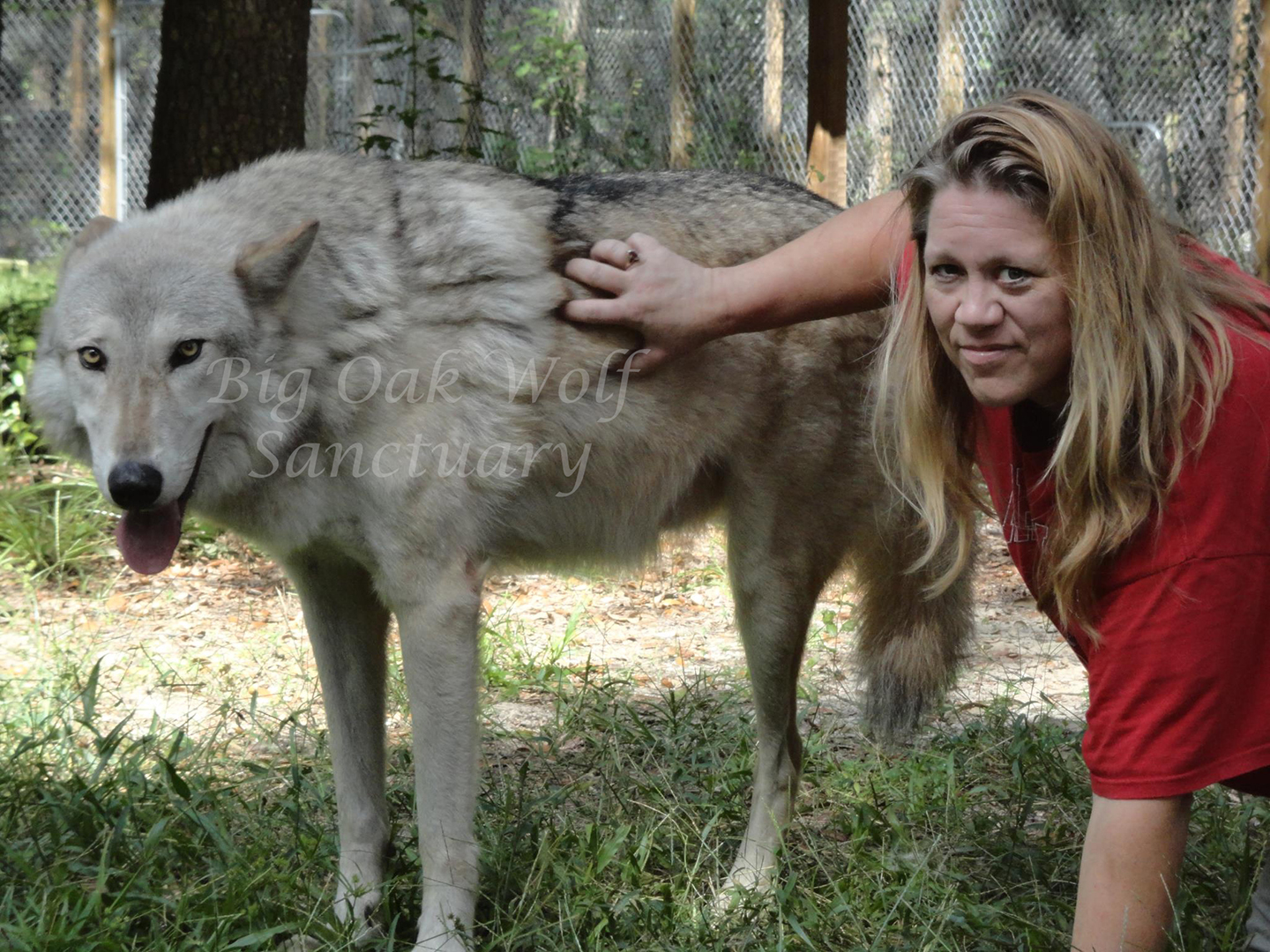 Is our investment of time, money and the anxiety of the rescued wolves, into the new volunteer going to “pay dividends” in the form of taking some of the load off the current volunteers, helping improve our ability to care for them and ultimately increasing their quality of life here in captivity??? If so, how long will it take them to reach this level? And possibly the most critical, how will the new volunteer’s personality mesh with the current volunteer body?
Is our investment of time, money and the anxiety of the rescued wolves, into the new volunteer going to “pay dividends” in the form of taking some of the load off the current volunteers, helping improve our ability to care for them and ultimately increasing their quality of life here in captivity??? If so, how long will it take them to reach this level? And possibly the most critical, how will the new volunteer’s personality mesh with the current volunteer body?
PEOPLE WITH BIG EGOS WHO MANAGE TO SLIP IN HERE BETWEEN THE CRACKS AND BEGIN TRYING TO “OUT-DO” OTHER VOLUNTEERS OR TELL US HOW TO DO THINGS ARE TOXIC TO THE VOLUNTEER BODY. THESE ANIMALS SEE THIS WELL BEFORE WE SEE IT AND WE PROMPTLY ESCORT THEM OFF OF THE PROPERTY BEFORE THE WOLVES FIND THEIR OPPORTUNITY TO ELIMINATE THE THREAT!
Although we have many volunteer inquiries, less than one out of ten are given the opportunity, as we simply don’t take chances in this area. For those to whom we extend the opportunity, we have some conditions.
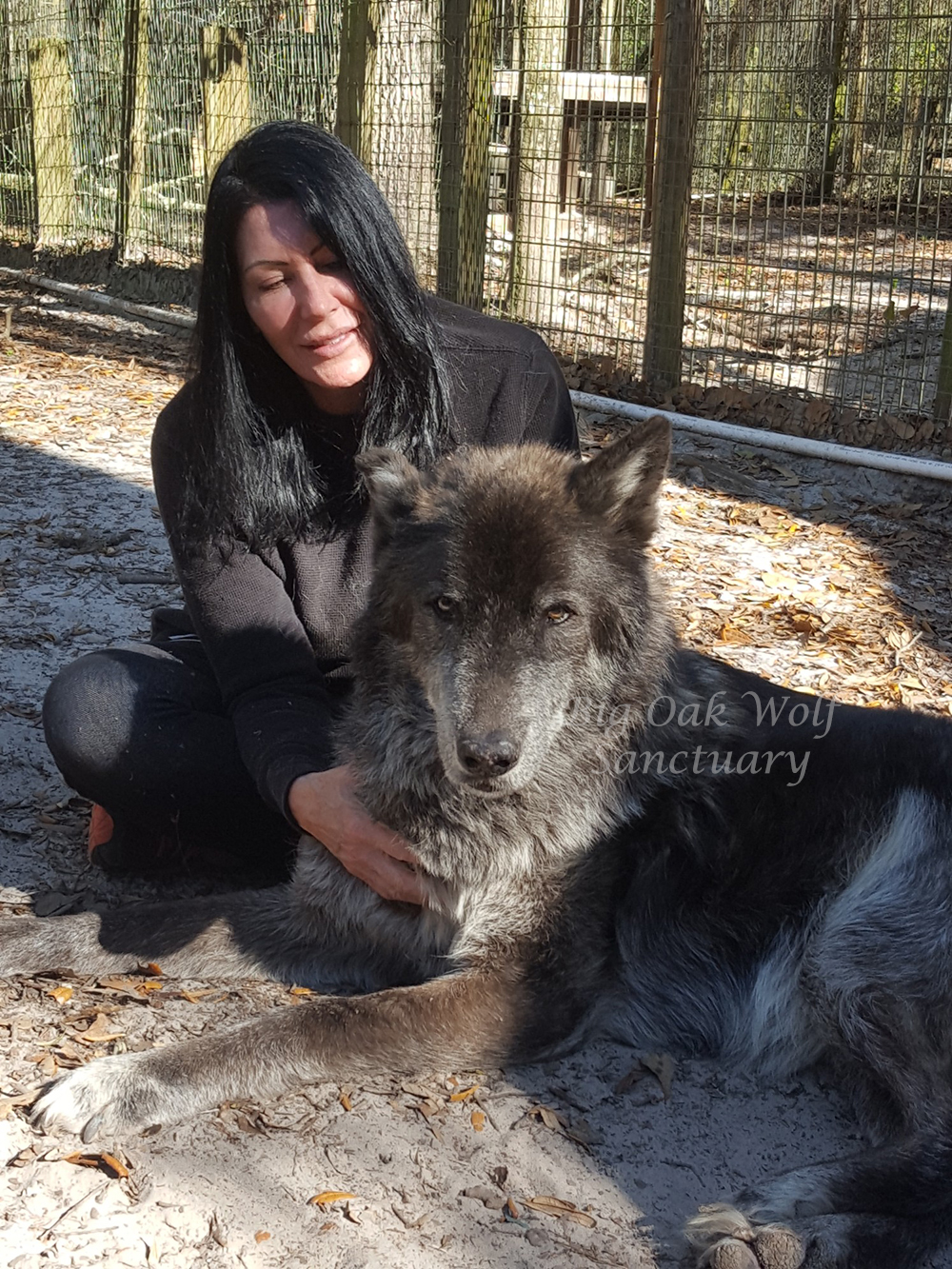 The first condition is that each new volunteer is required to commit to coming once a week for 5 hours, without missing their “weekly” volunteer time for at least three months. Otherwise, the critical volunteer routine has to be relearned each time the new volunteer comes in and done so at our and the animals’ expense, in the form of prolonged anxiety. So this commitment is also critical to the wolves acquiring a level of comfort with the new volunteer necessary to restore their “sanctuary environment” back to what is was before the new volunteer began.
The first condition is that each new volunteer is required to commit to coming once a week for 5 hours, without missing their “weekly” volunteer time for at least three months. Otherwise, the critical volunteer routine has to be relearned each time the new volunteer comes in and done so at our and the animals’ expense, in the form of prolonged anxiety. So this commitment is also critical to the wolves acquiring a level of comfort with the new volunteer necessary to restore their “sanctuary environment” back to what is was before the new volunteer began.
Secondly, each new volunteer is required to pay a $500.00 fee. We realize that some may see this as expensive, unreasonable, or even opportunistic on our part. But if we’re going to invest our time, money and the anxiety of the wolves into a new volunteer, they’re going to make an investment as well! Besides, $500.00 doesn’t even cover flea control for one month here and it doesn’t even begin to offset the expense of training a new volunteer—not even close! It does however separate serious volunteer inquiries from those who are just seeking recreation—those thinking it would be cool to come out and “hang out with wolves” for a day at our expense and if it doesn’t work out (if they don’t have fun), they can just bail out on their commitment, with no concern of how their motivation to “have some fun” affected the animals in our care or our ability to meet the daily responsibilities in caring for them. This is our way of making sure that those wanting to volunteer here have “skin in the game” as well!
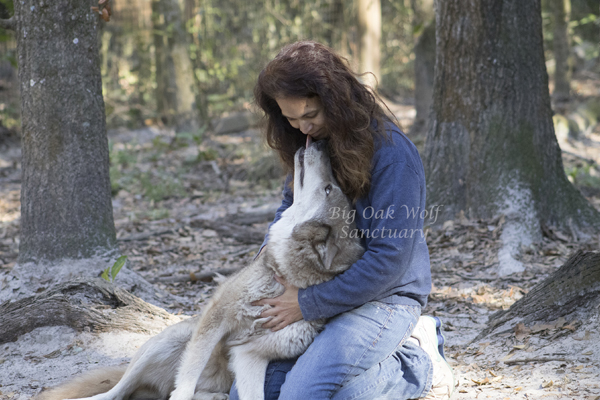 Finally, there’s a specific way we do things here to preserve the sanctuary environment, in order to allow these animals to be exactly who and what they are naturally, free from human control, and keep both animals and people safe. Our protocol of care and interaction has been refined over a period of MANY years by paying very close attention to the needs of the rescued wolves and wolf dogs and by asking God for His wisdom in all matters concerning both them and the facility accommodations. So we do not compromise our way of doing things here with anyone’s ideas, wants or recreational desires. Here, the people compromise their wants and desires for the needs of the rescued wolves and those who are not in a place in their lives to do so need not apply.
Finally, there’s a specific way we do things here to preserve the sanctuary environment, in order to allow these animals to be exactly who and what they are naturally, free from human control, and keep both animals and people safe. Our protocol of care and interaction has been refined over a period of MANY years by paying very close attention to the needs of the rescued wolves and wolf dogs and by asking God for His wisdom in all matters concerning both them and the facility accommodations. So we do not compromise our way of doing things here with anyone’s ideas, wants or recreational desires. Here, the people compromise their wants and desires for the needs of the rescued wolves and those who are not in a place in their lives to do so need not apply.
So the criteria for volunteering here involves:
- An understanding that volunteering here is not something we allow anyone to do for just a few months, but is a long-term commitment to learning how to care for the rescued wolves and wolf dogs, indefinitely.
- A weekly commitment of five hours on a specific day each week.
- An understanding that they cannot miss their weekly volunteer day for three months (12 consecutive weeks).
- And a CRYSTAL-CLEAR understanding that they here “as a student” to learn and be taught; they are not here tell us what all they know about wolves, or to “teach us” a better way of doing what we’re already doing and have been doing for over a decade with very good results!
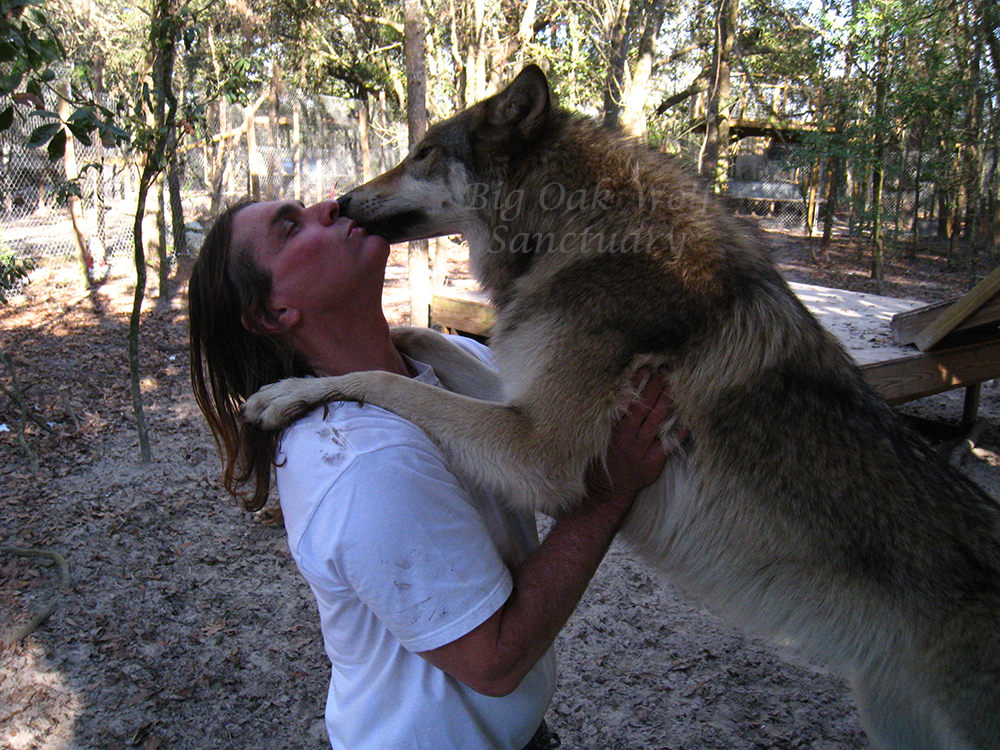 On a final note, the best volunteer candidates are actually those with very little knowledge of wolves, have a love for dogs, but are not dog experts (something that has to be unlearned here), and have a settled ego and a ton of humility! Most of the wolves are here as a result of peoples’ pride, ego and selfishness—humility expedites the learning process and dramatically smooths that of learning how to interact with the wolves. Ironically, they’re actually drawn to people who are hurting and are particularly fond of those whose hearts are broken.
On a final note, the best volunteer candidates are actually those with very little knowledge of wolves, have a love for dogs, but are not dog experts (something that has to be unlearned here), and have a settled ego and a ton of humility! Most of the wolves are here as a result of peoples’ pride, ego and selfishness—humility expedites the learning process and dramatically smooths that of learning how to interact with the wolves. Ironically, they’re actually drawn to people who are hurting and are particularly fond of those whose hearts are broken.
To discuss the process of becoming a volunteer at Big Oak Wolf Sanctuary, email us at: info@bigoakwolfsanctuary.org .